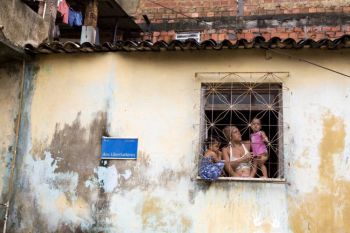Is Latin America’s problem of social inequality finally being tacked?

Over the last few years press reports on Latin America and the Caribbean have been far more positive than in the past. We have heard how the region is weathering the world financial crisis relatively well and how the region’s long-seated problem of extreme poverty is finally being tackled.
Does this mean that at last the region is facing up to its huge problem of social inequality? An interesting report published earlier this by Christian Aid, entitled ‘The Scandal of Inequality in Latin America and the Caribbean‘, points out that alleviating poverty is not the same as tackling the far deeper problem of social inequality and concludes that only very modest progress is being made on this front.
The report recognises that most governments in the region have become increasingly concerned about eradicating poverty. In the first decade of this century, many governments increased social spending and introduced programmes to reduce poverty.
These initiatives have borne results: the percentage of the region’s population in poverty declined by 12.5 percentage points between 2002 and 2011. This is clearly good news but not all impoverished groups have benefitted. In some countries indigenous populations and those of African descent have actually got poorer. For instance, poverty among the indigenous population in Guatemala rose by 22% from 2000 to 2006.
Moreover, the reduction of poverty does not mean that there has been a significant reduction in social inequality. The report says: “Income inequality in Latin America and the Caribbean is the most pronounced in the world and has not changed in four decades.” The richest 10% of the population in Latin America receive a larger share of total income than in any other region in the world.
The report says that the reason why such little progress has been made on this front is because the structural factors behind inequality – land concentration, a highly regressive tax system, an intransigent economic and political elite – remain as solidly in place as ever. Despite a modest reduction in the level of social inequality in recent years in a few countries, notably Brazil, the region continues to suffer from a huge problem of social injustice.
Moreover, climate change is likely to deepening the divide between the haves and the have-nots. Per is a case in point. “It is the poorest, living without early warning systems, emergency plans, infrastructure or financial support for coping with disasters who will disproportionately suffer from the glacial melt in Peru.”
The full report can be accessed here.

